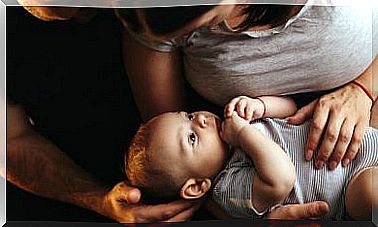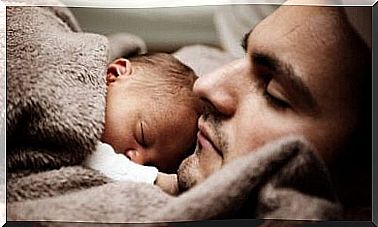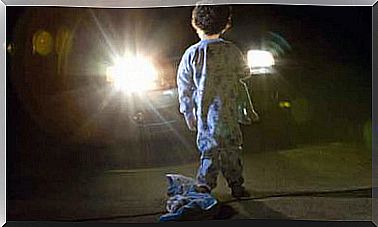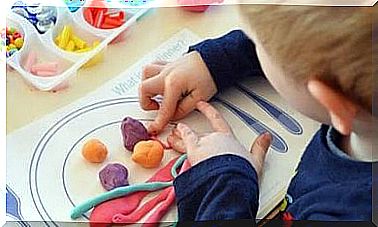Does Infantile Anorexia Exist?
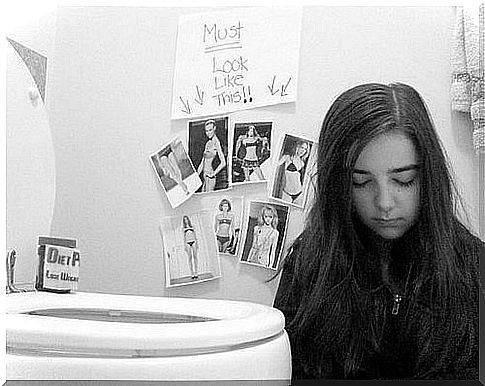
Perhaps for many it is a cause of surprise, but infantile anorexia does exist and is fully identified by specialists. In this regard, it is possible that we are comparing it with anorexia in adults and in particular with that harmful behavior that today has taken hold of many people, especially young women who want to be thin.
However, anorexia is an eating disorder that can affect anyone. One can speak of a voluntary resistance, in which the affected person decides not to eat food; but also in cases where there is a spontaneous rejection caused by various reasons.
On the other hand, we know that children generally grow up repeating the lifestyles of other adults, imitating attitudes and behaviors. Parents are the first role model in multiple aspects, so much of their habits are a reflection of what they observe in their closest family circle.
Therefore, if we maintain a wrong or ineffective habit, the child can copy us with great attention and can even become an “improved” version. So, unfortunately it is also convenient to talk about cases where infantile anorexia has become a habit taken from someone close to you.
Either for reasons of mishandling of information or misuse of resources, but without realizing it we may be aggravating the problem ; For example, according to the factors that intervene in the triggering of infantile anorexia, it is possible that we are allowing the habit to grow without acting.
When do we talk about the existence of infantile anorexia?
There are several types of infantile anorexia, but these are not always diagnosed in the correct way ; For example, Anorexia in Infants is often confused with problems related to lactose intolerance.
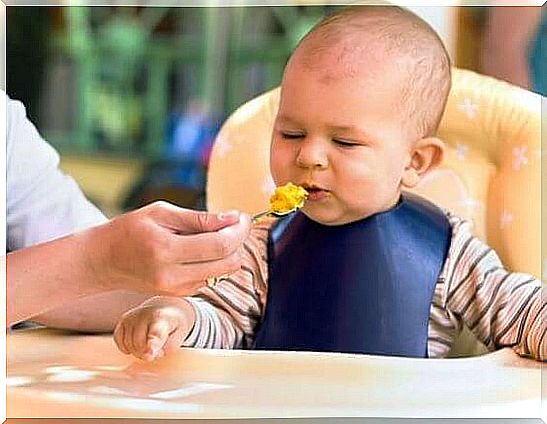
Other types such as Physiological Anorexia, is due to the amount of food required according to age and for its part, Psychogenic Anorexia is caused by external factors such as pressure and excessive food intake.
However, there are certain factors that can cause a child to become anorexic, among which we have the following.
- The child who suffers from obesity and is subjected to constant abuse or ridicule, is likely to have nausea or abdominal pain that is often invented by him to avoid consuming certain foods.
- In the case of perfectionist or very demanding parents, who subject their children to very strict diets. This usually causes that the obligation to eat certain foods or the prohibition of others, generates an anorexic process of a psychogenic type
- Children (especially girls) who are engaged in modeling activity, where there may be requirements determined by the demands of the market for which they work. In this particular case, serious problems can be triggered in adolescence.
- When mealtime becomes a time of conflict with the child, where the eating process represents punishment or torture
- The child is obsessed with the characters of his favorite television series, where similar cases are treated or there is a lot of insistence that they must look extremely thin. It is common in shows whose theme is the show or the academic context.
- The family has not created as consistent an eating habit as it should ; As well as taking a shower, sleeping at a certain time or doing homework, it is convenient that they have established their meal times. It is also recommended that they all sit down to eat together, in order to provide a correct eating pattern.

Recommendations in case of infantile anorexia
It is advisable to create eating habits in the child, just like any other routine he has daily, this in order to avoid the possible stress of mealtime. On the other hand, you should not force him to eat at the time we indicate it, if he resists trying the food at a similar time to the family, do not blame him for it.
Trying again and inviting him to eat on another occasion is a responsibility and at the same time a key to getting to know him better. In this particular, the idea is to try to interpret the reasons that make him reject the food, it is possible that he is trying to tell us something or that he is giving us signals that he needs more attention.
Let’s try to prepare fun dishes that look appetizing and of interest to him ; This can be done by providing an environment where they feel relaxed, you can tell them a story about the food you prepared and try to keep their attention at all times.
In more complex cases, the ideal is to seek professional help, a nutritionist can clarify doubts and will determine if it is a metabolism problem or if it refers to psychological causes; In any case, it will be advisable to consult first before exposing it to any wrong rating.


